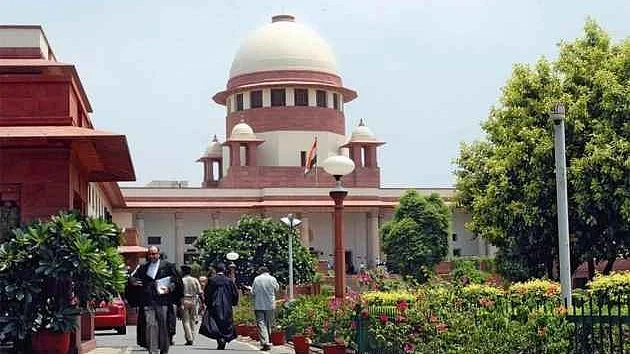In a big move, the Supreme Court agreed to hear a petition questioning the constitutional validity of Uttar Pradesh's 2024 amended law on unlawful religious conversion.
According to reports, a bench of Chief Justice Sanjiv Khanna and Justices Sanjay Kumar and K V Viswanathan took note of the submissions of senior lawyer S Muralidhar who said certain provisions of the Uttar Pradesh Prohibition of Unlawful Conversion of Religion Act, as amended in 2024, were "vague and overly broad" and the ambiguity infringed upon free speech and religious propagation.
However, the CJI did not issue a notice on the plea for the time being and said it will be heard along with other pending petitions on May 13.
The apex court was hearing a PIL filed by Roop Rekha Verma, who hails from Lucknow, and others against the amended law.
The petition, filed through advocate Purnima Krishna, alleged that the law violates Articles 14 (equality before law), 19 (freedom of speech and expression), 21 (right to life and personal liberty) and 25 (freedom of religion) of the Constitution.
Sections 2 and 3 of the Act, it claimed, were “vague, overly broad, and lack clear standards” which made it difficult to determine what constituted an offense. “This ambiguity infringes upon free speech and religious propagation, enabling arbitrary enforcement and discriminatory application. Penal laws must be precise; vague provisions violate constitutional principles by granting excessive discretion to authorities, failing to provide reasonable notice, and risking wrongful prosecution of innocent individuals,” the plea said, as quoted by PTI.
This ambiguity opens the door to arbitrary enforcement and discriminatory practices, especially against individuals seeking to practice or propagate their faith, it added.
The plea further said penal laws must be defined with precision to prevent misuse by authorities and avoid the wrongful prosecution of innocent citizens.
It said the key concern is that the 2024 amendment expands the category of individuals authorized to file complaints without incorporating procedural safeguards.
"The law presumes malintent behind all religious conversions and views adult individuals with suspicion, thereby reducing them to subjects whose personal decisions must be validated by the state," it said.
Challenging the proportionality of the prescribed punishment, which it said was "excessive", the plea said, “The government, by assuming the role of protector of religious identities, encroaches on the individual's right to choose their faith." The lack of procedural safeguards, it said, subjects the accused and their families to prolonged legal battles, financial burdens, and social stigma, despite no substantive evidence of wrongdoing.
Various petitions challenging the validity of various state laws relating to religious conversion are pending in the apex court.
(With PTI Inputs)














